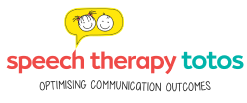Episode 8: My Opinion about What You should do If Your Child is Struggling with Reading
Most people don’t know that speech therapists can work with children with reading disorders such as dyslexia. Read this article to find out more about the scope of work of speech therapists.
Yes, speech therapists who have specialised in literacy disorders can and do offer therapy to children who are struggling with their literacy skills, i.e. reading, writing and spelling.
Most parents I have encountered in Kenya would probably approach their child’s teacher to offer some before or after school tutoring.
Other parents may adopt a “wait and see” approach, which I should add is not such a great idea if you take into consideration what I am going to say next.
Reading skills are foundational to most other academic skills and determine the level of success your child will experience at school.

Several researches have even go as far as to peg a student’s reading skills to school dropout rates and such factors as confidence, etc.
How to identify if your child is struggling with reading?
The telltale signs for struggling readers are usually easy to spot. If your child;
- Is difficult to motivate during reading activities
- Is displaying oppositional behaviour or even meltdowns during reading-related activities
- Prefers to guess than to attempt reading words
- Prefers that you read the text instead of them
- Is struggling with different subjects at school
- Is making slow reading progress compared to their age-matched peers and in spite of adequate literacy instruction, or
- If your child’s teacher has raised a concern with their reading skills
If you feel that your child is not optimising on their potential
Then, it is very likely that they are experiencing literacy or reading difficulties.
What should you do if you suspect your child may be struggling with reading?
If you are able to access a reading or literacy specialist or a speech therapist who specialises in literacy disorders such as dyslexia, then that would be my first recommendation.
I strongly recommend doing your due diligence on the qualification of the specialist you opt to evaluate your child as picking someone who isn’t specialised in this area may delay or hinder your child’s progress.
It is not unheard of for children experiencing reading disorders not to make sufficient progress in reading even after going through years of ‘learning support’ or ‘reading recovery’.
And if you consider that a child’s reading difficulties can be successfully remediated within a significant period of time with the appropriate intervention, it’s incredibly unfortunate to correctly identify the presence of an issue then offer an intervention that does little to change the child’s reading outcomes.
The Difference between Specialist Intervention and Tutoring
I understand why most parents would seek a tutor for their child who isn’t making sufficient reading progress, but if a targeted approach to the tutoring or intervention isn’t used, then your child can stand a real chance of not making progress.
A better approach would be to evaluate a child suspected to have a reading disorder.
Literacy skills are strongly linked with phonological awareness (explicit awareness of the sound structure of words) and PA skills are in turn strongly linked with communication (speech and language) skills. So you can say that literacy skills are very much linked to speech and language skills.
Research has found that literacy skills are pegged on how well a child’s PA skills are and further propose that children first learn to read a word through the phonological route.

PA can be categorised into 3 areas: rhyme, syllables and phonemes (sounds). Mastery of all 3 of these areas is fundamental in ensuring literacy success.
So evaluate what foundational skills to reading your child has mastered and those your child is struggling with, then, offer focused intervention that aims to strengthen the weak skills and boost confidence of the already established skills.
This is what I mean, if your child is good at pulling apart sounds or what is referred to as phoneme segmentation and not say, generating rhymes, as you work on firming up rhyme generation, you could provide the child with opportunities to segment easy to segment words like cat, hat, etc. Words that are predictable in order for the child to get a sense of success.
Often times, children with reading disorders such as dyslexia do not experience enough success with reading which causes them to hate reading. If you gave a child who is struggling to read a very difficult text book, it diminishes their confidence in the skills they already have as all they’ll do is refuse to keep failing at it.

Final word
Therapy that targets speech, language and phonological awareness skills directly impacts on their literacy development.
Our comprehensive assessment can pinpoint areas of strengths and weaknesses in your child’s literacy foundation and tailor therapy solutions based on age and skill level. We treat children of all ages from preschool years to high school.
You can also check out our blog for articles specifically aimed at supporting parents to make more conscious decisions that optimize their children’s communication and learning.







